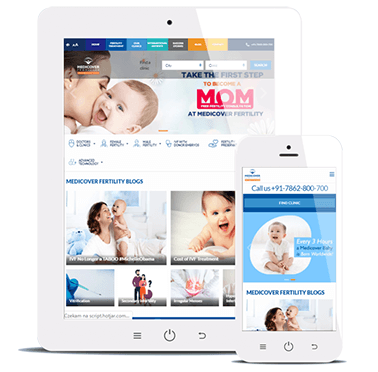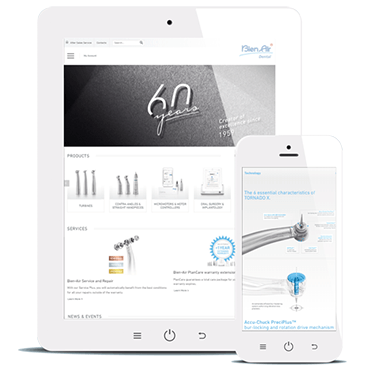Native applications - Get the most out of your device
... How can we help you? Free consultation

The power of native apps lies in their ability to integrate directly with a device's operating system and take advantage of the full potential offered by a specific platform.
Native apps are programs designed and developed with a specific mobile platform in mind, such as Android or iOS.
As a result, they take full advantage of the capabilities of a particular system. The result? Maximum usability and affordability for users.
The long list of advantages of native apps makes them a frequent choice for many companies' projects.
Native applications - benefits
High performance and smooth operation By optimizing for a specific platform and taking advantage of the operating system's features, native apps have exceptional performance and smoothness. They give users a fast and responsive experience, which translates into satisfying user navigation.
Intuitive user interface
When designing a native application, developers can focus on creating a user interface that perfectly matches the guidelines and standards of a particular platform. This makes it easy for users to navigate through the application without having to learn new interaction patterns.
Wide range of features
Native apps have access to the full range of features and capabilities offered by a given operating system. Developers can use these features to create feature-rich applications that can address even the most sophisticated user needs.
Security and stability
Native applications can integrate directly with the operating system and use native security mechanisms. As a result, they are usually more resistant to attacks and more stable in operation compared to applications developed in other technologies. This provides users with a greater sense of security and increases confidence in the application.
Native applications are an excellent choice for projects requiring the highest quality, performance, and usability. Their ability to provide appropriate user experience, performance, and security makes them indispensable in many industries and fields.
Use the full potential of your application!
Contact us - we will tailor the best solution for you!
Developing applications for the Android platform
The Android platform offers a wide range of possibilities for developers who want to create powerful and intuitive mobile applications. At your disposal are:
- Java and Kotlin programming languages.
- Android Studio - the official development environment that provides all the necessary tools to create, test, and deploy applications for Android devices.
When developing Android applications, we pay special attention to the specifics of how the operating system works. This includes knowledge of Google's user interface, security, and performance guidelines. This ensures that the application will comply with Google Play policies and provide users with a comfortable and smooth user experience.
Adapting the application to the specifics of Android also includes the use of native libraries and features available on this platform. This allows you to create an app that takes full advantage of the device's capabilities and provides users with the best possible experience. These applications are a great way to create a mobile product that is fast, responsive, functional, and secure.
Contact us
and see what Android app we can design for you!
iOS - application development for the Apple platform
In the world of mobile applications, Apple's iOS is one of the most prestigious platforms on which innovative solutions are created. To succeed in this market, it is crucial to have a solid understanding of the essential elements involved in iOS app development.
The two principal programming languages used for app development are Objective-C and Swift. Objective-C is gradually giving way to the more modern Swift, which offers a more efficient and intuitive way to create code. With these languages, developers can build iOS functional and durable apps.
Xcode is the main development environment used to create iOS apps. It offers several tools for designing, debugging, and testing apps, making it indispensable for iOS developers. With Xcode, developers can quickly prototype, iterate, and deploy their ideas, controlling the development process.
The overriding goal of any iOS app is to provide users with an intuitive and enjoyable interface. To that end, it makes sense to follow best practices in UX/UI design. At Ideo, we specialize in developing iOS apps that meet our clients' expectations and provide users with the highest level of usability and satisfaction.
Contact us
and see what iOS app we can design for your business!
 Performance of native apps - why are they so fast?
Performance of native apps - why are they so fast?
The speed and smoothness of native apps are one of the main reasons why they are the preferred choice in the world of mobile technology. Several key factors contribute to this exceptional performance.
Native apps are designed and optimized specifically for a particular operating system, such as Android or iOS. As a result, every line of code is optimized to make the best use of the resources and capabilities offered by a particular system, resulting in faster app performance.
- Developers take advantage of the available libraries and features offered by the operating system.
- Instead of relying on the abstraction layer or additional tools, they can directly use the functions provided by the system, which speeds up operations.
- Native applications are typically faster than hybrid and web applications due to the lack of need for code translation, device-specific optimization, direct access to device functions, and use of native interface components.
Ensure the performance and security of your application
Contact us
Native vs cross-platform apps
Are you wondering which mobile app technology to choose? This is a crucial decision on which the success of your business may depend. Here are the most relevant advantages of native apps over cross-platform technology.
- Greater capabilities of native apps
Native apps can take full advantage of its capabilities. This means access to a wide range of system features and libraries, allowing the development of more advanced and functional applications.
- Higher performance and smoother operation
Native applications are optimized for a specific system, giving them higher performance and smoothness compared to cross-platform solutions. Faster response times and smooth animations translate into a better user experience.
- Intuitive interface and user experience
Native applications can use the native user interface elements of a given system, ensuring a consistent and intuitive user experience. Users must not learn new navigation and gestures, making it significantly easier to use applications.
Why choose native applications?
- The best way to create high-performance applications
Native apps are usually faster and more responsive than hybrid and web apps. This is because the application code is written in the native language of the operating system and does not require translation at launch. Native apps can also take advantage of all the features and capabilities of a given device, making the app smooth, efficient, and effective.
- Intuitive interface and user experience
Native apps are designed with a specific operating system and its user interface in mind. This makes native applications more intuitive for users and easier to use. Users do not have to learn a new interface because it is compatible with the system they are using.
- Wide range of features and security
Native apps have direct access to all device functions, such as the camera, GPS, and microphone. This allows the creation of apps with rich functionality that is not available to hybrid and web apps. In addition, native apps tend to be more secure because they follow the security guidelines of a given operating system.
Are you not sure which solution to choose? Do you want to learn even more about the benefits of native applications? Contact us. We will answer all your questions!
Are you not sure which solution to choose? Do you want to learn even more about the benefits of native applications?
Contact us
We will answer all your questions!
FAQ – Native applications
- What is a native app?
A native app is a software application designed for a specific platform or device. It is usually written in programming languages and development tools that are native to the operating system of the device. For instance, native apps for iOS are created using Swift or Objective-C with Apple’s Xcode IDE, while native apps for Android are developed in Java or Kotlin using Android Studio.
- What is a best example of a native app?
A prime example of a native app is WhatsApp, initially developed for both iOS and Android devices. It excels in performance and user experience by encompassing various functionalities, such as voice and video calling, voice messaging, group features facilitating up to 8 participants per call, secure messaging with end-to-end encryption, media sharing capabilities encompassing photos, videos, and documents, and an advanced search feature.
- How does native app development improve performance and user experience?
Native apps improve performance and user experience by optimizing the device’s hardware and software capabilities. Through direct access to native APIs and components, they deliver faster load times, seamless animations, and improved responsiveness. Simultaneously, they allow for the customization of the app’s interface to align with the platform’s design guidelines, which, as a result, leads to a more intuitive and consistent user experience.
- What are the key benefits of choosing native app development over a hybrid solution? Native apps maximize system capabilities by directly accessing device features and libraries, allowing for the development of complex and feature-rich applications optimized for specific platforms. That results in superior performance, faster loading times, smoother animations, and better responsiveness. In contrast, while more cost-effective and quicker to develop, hybrid apps, which often rely on web technologies wrapped in a native container, may compromise performance.Moreover, native apps utilize platform-specific user interface elements, ensuring a consistent and intuitive interface that aligns with users' expectations and enhances usability. These factors reduce the user learning curve and contribute to higher satisfaction. On the other hand, hybrid apps may face challenges in fully leveraging device-specific features and may not offer the same level of seamless integration with the operating system.
- What programming languages are used for native app development?
Native apps require platform-specific programming languages and tools designed for each operating system. iOS developers use Swift and Objective-C, while Android apps are mainly created using Java or Kotlin.
- Can you provide examples of native applications you have developed?
We have developed a variety of native applications, each designed for specific needs and available on different platforms, including iOS and Android. Among these is Potreningu.pl, a dedicated mobile app commissioned by SFD, accessible on Google Play and iTunes. One of its main features is a calorie calculator, which helps users intuitively calculate their meals’ caloric content and macronutrient composition. They can also easily add new products or choose from an existing database and, if registered, have access to a food diary and training plan.
- Can you integrate existing systems or databases into a native mobile app?
Of course! Existing systems or databases can be integrated into a native mobile app using various methods and technologies. Typically, we use APIs provided by existing systems or databases to retrieve data, conduct transactions, or synchronize real-time information. For example, these can facilitate connections between an app and a backend server, cloud storage, or enterprise systems such as CRM or ERP.
Contact us



 Performance of native apps - why are they so fast?
Performance of native apps - why are they so fast?






